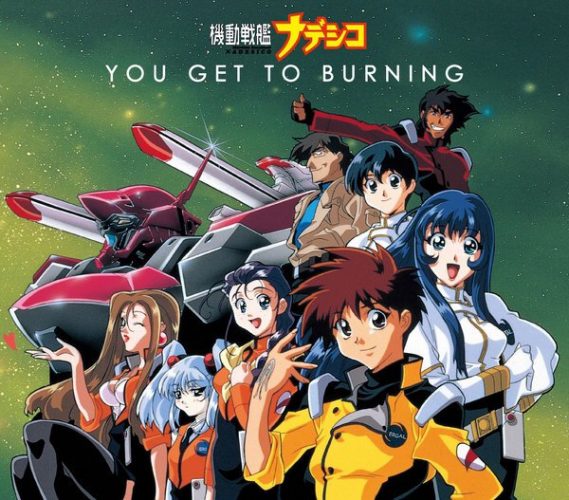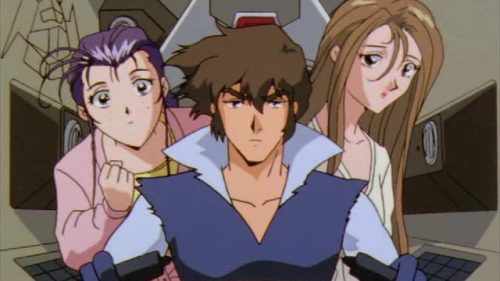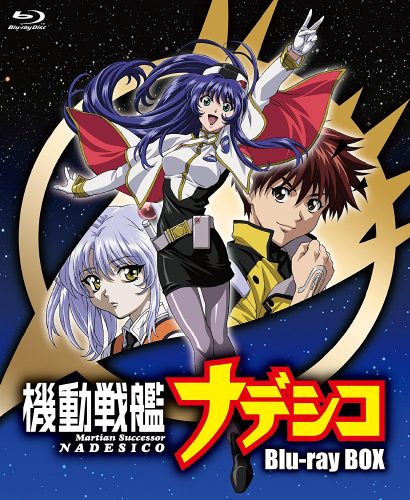
Commentary on narrative is a highly popular trend for storytelling these days. In a way, it’s the only story that’s really even left: just about every kind of plot imaginable feels like it’s been done, so now all you can do is discuss the ramifications of what stories can do to people. Anime has been doing this for a bit now, whether it’s Puella Madoka Magica turning the narrative of magical girl anime into a horror story, Yuri on Ice moving the boys love subtext of sports right into the main text, or Hunter x Hunter seeing a revival due to how it analyzes the tropes of Shounen battle series.
But this isn’t new. Writers have been subverting tropes and expectations of genre and have been commenting on said subversion for years now. One of the most notable examples comes from the now forgotten fan favorite Martian Successor Nadesico, which was a direct commentary on the usage of space operas and giant mechs to bolster nationalism and glorify military operations. We’ll take a quick look at some of the key factors of how Nadesico related fandom back into reality.
Gai Daigoji

Abrasive, headstrong, and passionate, Gai epitomizes what you would expect from an overeager otaku. That’s exactly how Nadesico plays up his character too: he joined the military because he was completely taken by the fictional mecha show Gekiganger. He doesn’t even mind the idea of dying in battle so long as it’s an epic showdown where he gets to die a glorious death. In what is perhaps the most famous scene of the show, Gai gets his death, but in the least glamorous fashion; he’s shot in secret during a prison escape and quietly whispers the same phrase his favorite character says when they die in Gekiganger.
Gai’s naive passion highlights how military organization can so easily take advantage of the impressionable. It’s hard not to be charmed by Gai’s earnestness and enthusiasm for his favorite show, so when Akito chooses to follow Gai’s ideals in honor of him, you can’t help but be sympathetic. Yet, in the end, Gai’s ideals really meant nothing. His death was as casual and pointless as any death in war, yet he clung to his stubborn belief up until his dying breath.
Jovian Fandom
In a shocking twist past the halfway point of the series, the crew of the Nadesico find themselves in a Jovian base only to discover that not only are their enemies humans, but they’re all huge fans of Gekiganger too. In fact, Gekiganger is used openly as propaganda by the Jovian government to justify their war with Earth. It’s just that while Akito was inspired by its call for peace, the Jovians take it as a call for war and how the ends ultimately justify the means to get there.
It’s a bit on the nose, but the contrast between what Akito believed about Gekiganger vs the Jovians is precisely how the public narrative is so easy to twist. After all, what the characters preach in Gekiganger is completely at odds with their actual actions. They yearn for peace, yet what really draws people to the show is the bombastic action and grandstanding. Really, the only difference is that the Jovians took advantage of the anger of their people due to how Earth betrayed them in the past by banishing them into space. They just use Gekiganger as a simple message that the citizens can easily understand.
Prince of Darkness
Martian Successor Nadesico ends on such a positive, bittersweet note. The war is taking its first steps to be over, Akito has finally gotten over his hangups and professed his love to Yurika, and the characters seem to be pursuing a path to happiness.
So it's understandable why the movie sequel, Prince of Darkness, was so poorly received by fans. After all, Akito was no longer the goofy, awkward guy we grew to love in the TV series. He was a tortured soul; and when he saved Yurika at the end of the movie, he doesn’t even say anything to her and isolates himself. Everything looks like it’s getting worse by the end of it, not better.
It’s not actually that great of a movie, but Prince of Darkness was onto something. It was acknowledging that in the process of deconstructing space operas of old, it too was at risk of becoming over-idolized as a piece of entertainment. Prince of Darkness was an attempt at solidifying the creeping reality of the original TV series by drastically altering the dynamic of Akito and Yurika. Nothing was meant to be sacred, lest people would get drawn into the same world that Nadesico wanted to keep people away from.
Final Thoughts

Martian Successor Nadesico isn’t the first deconstruction of anime out there, but it is one of the most notable for placing it so much at the forefront of its story. It was popular at the time of its release but seems to have been forgotten over time, even when many of its peers like Cowboy Bebop, Trigun, and Neon Genesis Evangelion have survived.
Have you ever watched Martian Successor Nadesico? Want others to watch it? Please, leave your comments below to encourage others to follow suit!

